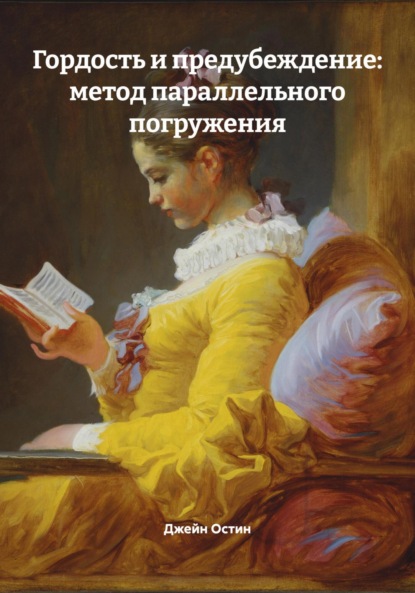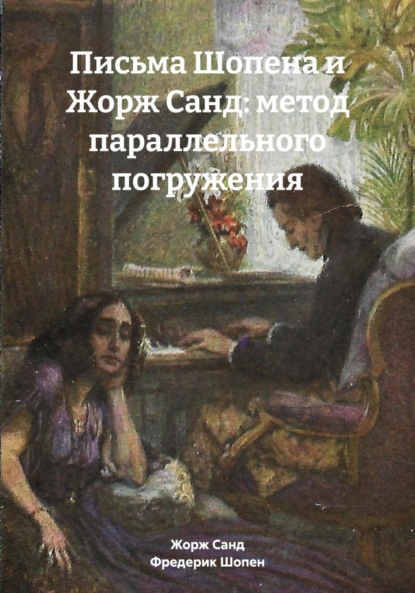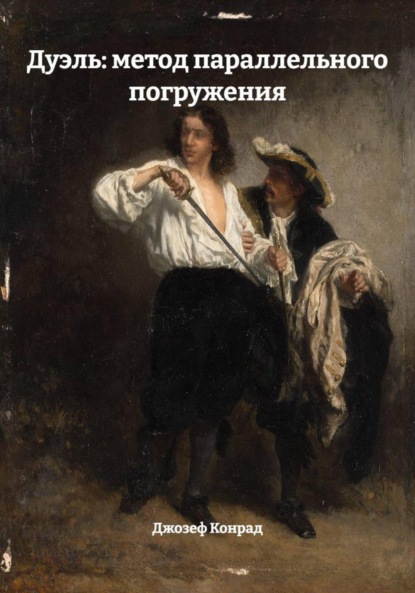Гордость и предубеждение: метод параллельного погружения

- -
- 100%
- +
Elizabeth listened in silence, but was not convinced: their behaviour at the assembly had not been calculated to please in general; and with more quickness of observation and less pliancy of temper than her sister, and with a judgment, too, unassailed by any attention to herself, she was very little disposed to approve them. They were, in fact, very fine ladies; not deficient in good-humour when they were pleased, nor in the power of being agreeable where they chose it; but proud and conceited.
They were rather handsome (они были довольно привлекательны; rather handsome – довольно симпатичные); had been educated in one of the first private seminaries in town (были воспитаны в одном из лучших частных пансионов в городе; educated – обученные; private seminaries – частные пансионы); had a fortune of twenty thousand pounds (имели состояние в двадцать тысяч фунтов; fortune – состояние); were in the habit of spending more than they ought (имели привычку тратить больше, чем следовало; in the habit of – привыкли; ought – следовало бы), and of associating with people of rank (и водились с людьми знатного происхождения; associating with – общаться с; people of rank – знатные люди); and were, therefore, in every respect entitled to think well of themselves and meanly of others (и, следовательно, во всех отношениях считали себя вправе хорошо думать о себе и пренебрежительно – о других; in every respect – во всех отношениях; entitled to – имеющие право; think well of – хорошо думать о; meanly of – пренебрежительно о). They were of a respectable family in the north of England (они происходили из уважаемой семьи на севере Англии; respectable family – уважаемая семья), a circumstance more deeply impressed on their memories (обстоятельство, более глубоко врезавшееся в их память; circumstance – обстоятельство; impressed on their memories – отпечатавшееся в памяти), than that their brother’s fortune and their own had been acquired by trade (чем тот факт, что состояние их брата и их собственное было нажито торговлей; had been acquired – было приобретено; by trade – торговлей).
They were rather handsome; had been educated in one of the first private seminaries in town; had a fortune of twenty thousand pounds; were in the habit of spending more than they ought, and of associating with people of rank; and were, therefore, in every respect entitled to think well of themselves and meanly of others. They were of a respectable family in the north of England; a circumstance more deeply impressed on their memories than that their brother’s fortune and their own had been acquired by trade.
Mr. Bingley inherited property to the amount of nearly a hundred thousand pounds from his father (Мистер Бингли унаследовал имущество почти на сто тысяч фунтов от своего отца; inherited – унаследовал; property – имущество, состояние; to the amount of – на сумму; nearly – почти; a hundred thousand pounds – сто тысяч фунтов), who had intended to purchase an estate, but did not live to do it (который собирался купить поместье, но не дожил до этого; intended – намеревался; to purchase an estate – купить поместье; did not live to do it – не дожил, чтобы осуществить это). Mr. Bingley intended it likewise (Мистер Бингли тоже собирался это сделать; intended – намеревался; likewise – также, тоже), and sometimes made choice of his county (и иногда даже выбирал графство; made choice of – выбирал; county – графство), but, as he was now provided with a good house and the liberty of a manor (но так как теперь у него был хороший дом и право пользоваться имением; provided with – обеспечен, снабжён; liberty of a manor – право на имение, свобода распоряжаться поместьем), it was doubtful to many of those who best knew the easiness of his temper (многие из тех, кто хорошо знал мягкость его характера, сомневались; doubtful – сомнительно; easiness of temper – мягкость нрава, уступчивость характера), whether he might not spend the remainder of his days at Netherfield (не проведёт ли он остаток своих дней в Нетерфилде; remainder of his days – остаток его жизни), and leave the next generation to purchase (и не оставит ли следующему поколению заботу о покупке; leave – оставить; next generation – следующее поколение; to purchase – покупать).
Mr. Bingley inherited property to the amount of nearly a hundred thousand pounds from his father, who had intended to purchase an estate, but did not live to do it. Mr. Bingley intended it likewise, and sometimes made choice of his county; but, as he was now provided with a good house and the liberty of a manor, it was doubtful to many of those who best knew the easiness of his temper, whether he might not spend the remainder of his days at Netherfield, and leave the next generation to purchase.
His sisters were very anxious for his having an estate of his own (его сёстры очень хотели, чтобы у него было собственное поместье; anxious for – стремились к тому, чтобы; estate – поместье; of his own – своё собственное), but though he was now established only as a tenant (но, хотя сейчас он устроился лишь как съёмщик; established – устроился, обосновался; tenant – арендатор, съёмщик), Miss Bingley was by no means unwilling to preside at his table (мисс Бингли вовсе не возражала против того, чтобы сидеть во главе его стола; by no means – вовсе не; unwilling – не желающая; to preside at – возглавлять, председательствовать), nor was Mrs. Hurst, who had married a man of more fashion than fortune, less disposed to consider his house as her home when it suited her (и миссис Хёрст, которая вышла замуж за человека скорее модного, чем богатого, была не менее склонна считать его дом своим, когда ей это было удобно; more fashion than fortune – больше моды, чем состояния; less disposed – не менее расположена; consider – считать; when it suited her – когда ей это подходило). Mr. Bingley had not been of age two years (Мистеру Бингли не было и двух лет совершеннолетия; been of age – достиг совершеннолетия), when he was tempted, by an accidental recommendation, to look at Netherfield House (как его соблазнило, по случайной рекомендации, посмотреть дом Нетерфилд; tempted – соблазнился, заинтересовался; accidental recommendation – случайный совет, рекомендация; to look at – взглянуть на). He did look at it, and into it, for half an hour (он действительно осмотрел его – снаружи и изнутри – за полчаса; did look – действительно посмотрел; into it – внутрь, внутри него; half an hour – полчаса), was pleased with the situation and the principal rooms (ему понравилось местоположение и главные комнаты; pleased with – доволен; situation – местоположение; principal rooms – главные комнаты), satisfied with what the owner said in its praise (удовлетворён тем, что сказал владелец в его похвалу; satisfied with – доволен; in its praise – в его похвалу), and took it immediately (и сразу же его взял; took – взял; immediately – немедленно).
His sisters were very anxious for his having an estate of his own; but though he was now established only as a tenant, Miss Bingley was by no means unwilling to preside at his table; nor was Mrs. Hurst, who had married a man of more fashion than fortune, less disposed to consider his house as her home when it suited her. Mr. Bingley had not been of age two years when he was tempted, by an accidental recommendation, to look at Netherfield House. He did look at it, and into it, for half an hour; was pleased with the situation and the principal rooms, satisfied with what the owner said in its praise, and took it immediately.
Between him and Darcy there was a very steady friendship, in spite of a great opposition of character (между ним и Дарси была очень прочная дружба, несмотря на сильное различие характеров; steady – устойчивый, прочный; in spite of – несмотря на; opposition of character – различие в характере). Bingley was endeared to Darcy by the easiness, openness, and ductility of his temper (Дарси располагался к Бингли за мягкость, открытость и уступчивость его нрава; endeared to – стал дорог, вызвал привязанность; easiness – мягкость; openness – открытость; ductility – уступчивость; temper – характер), though no disposition could offer a greater contrast to his own (хотя ни один характер не мог бы быть более противоположным его собственному; disposition – нрав, характер; contrast – противоположность), and though with his own he never appeared dissatisfied (и хотя своим он никогда не казался недовольным; appeared dissatisfied – казался недовольным). On the strength of Darcy’s regard, Bingley had the firmest reliance (на привязанность Дарси Бингли полагался с полной уверенностью; on the strength of – основываясь на, благодаря; regard – расположение, привязанность; firmest reliance – твёрдая уверенность, полное доверие), and of his judgment the highest opinion (и о его суждении имел самое высокое мнение; judgment – суждение, мнение; highest opinion – наивысшее мнение). In understanding, Darcy was the superior (по уму Дарси превосходил; understanding – ум, интеллект; superior – превосходящий). Bingley was by no means deficient (Бингли вовсе не был ограниченным; by no means – вовсе не; deficient – лишённый способностей), but Darcy was clever (но Дарси был умён; clever – умный, проницательный). He was at the same time haughty, reserved, and fastidious (одновременно он был надменным, сдержанным и разборчивым; haughty – высокомерный; reserved – сдержанный; fastidious – разборчивый, привередливый), and his manners, though well bred, were not inviting (и его манеры, хотя и воспитанные, не располагали к себе; manners – манеры; well bred – хорошо воспитанный; not inviting – не располагающие). In that respect his friend had greatly the advantage (в этом отношении его друг имел большое преимущество; in that respect – в этом отношении; had the advantage – имел преимущество). Bingley was sure of being liked wherever he appeared (Бингли всегда мог быть уверен, что понравится, где бы он ни появился; sure of being liked – уверен, что понравится; wherever – где бы ни), Darcy was continually giving offence (Дарси же постоянно задевал людей; continually – постоянно; giving offence – обижал, задевал).
Between him and Darcy there was a very steady friendship, in spite of a great opposition of character. Bingley was endeared to Darcy by the easiness, openness, and ductility of his temper, though no disposition could offer a greater contrast to his own, and though with his own he never appeared dissatisfied. On the strength of Darcy’s regard, Bingley had the firmest reliance, and of his judgment the highest opinion. In understanding, Darcy was the superior. Bingley was by no means deficient; but Darcy was clever. He was at the same time haughty, reserved, and fastidious; and his manners, though well bred, were not inviting. In that respect his friend had greatly the advantage. Bingley was sure of being liked wherever he appeared; Darcy was continually giving offence.
The manner in which they spoke of the Meryton assembly was sufficiently characteristic (манера, в которой они отзывались о бале в Меритоне, была вполне характерной; manner – манера, способ; assembly – бал, собрание; sufficiently characteristic – вполне характерная). Bingley had never met with pleasanter people or prettier girls in his life (Бингли никогда в жизни не встречал более приятных людей или более симпатичных девушек; had never met with – никогда не встречал; pleasanter – более приятных; prettier – более симпатичных). Everybody had been most kind and attentive to him (все были чрезвычайно добры и внимательны к нему; kind – добрый; attentive – внимательный). There had been no formality, no stiffness (не было ни формальностей, ни чопорности; formality – формальность; stiffness – чопорность, скованность). He had soon felt acquainted with all the room (он вскоре почувствовал себя знакомым со всей комнатой – то есть со всеми людьми в ней; felt acquainted – почувствовал себя знакомым; the room – здесь: все присутствующие). And as to Miss Bennet, he could not conceive an angel more beautiful (а что касается мисс Беннет, то он не мог представить ангела прекраснее; as to – что касается; could not conceive – не мог вообразить; more beautiful – прекраснее). Darcy, on the contrary, had seen a collection of people in whom there was little beauty and no fashion (Дарси, напротив, увидел собрание людей, в которых было мало красоты и не было никакой модности; on the contrary – напротив; collection of people – собрание людей; fashion – изысканность, светская манера). For none of whom he had felt the smallest interest (ни к кому из них он не почувствовал ни малейшего интереса; felt the smallest interest – испытал малейший интерес), and from none received either attention or pleasure (и ни от кого не получил ни внимания, ни удовольствия; attention – внимание; pleasure – удовольствие). Miss Bennet he acknowledged to be pretty (он признал, что мисс Беннет симпатична; acknowledged – признал; pretty – хорошенькая), but she smiled too much (но она слишком много улыбалась; smiled too much – слишком много улыбалась).
The manner in which they spoke of the Meryton assembly was sufficiently characteristic. Bingley had never met with pleasanter people or prettier girls in his life; everybody had been most kind and attentive to him; there had been no formality, no stiffness; he had soon felt acquainted with all the room; and as to Miss Bennet, he could not conceive an angel more beautiful. Darcy, on the contrary, had seen a collection of people in whom there was little beauty and no fashion, for none of whom he had felt the smallest interest, and from none received either attention or pleasure. Miss Bennet he acknowledged to be pretty; but she smiled too much.
Mrs. Hurst and her sister allowed it to be so (миссис Хёрст и её сестра признали, что это так; allowed it to be so – признали это, согласились с этим), but still they admired her and liked her (но всё же восхищались ею и она им нравилась; admired – восхищались; liked – нравилась), and pronounced her to be a sweet girl (и объявили её милой девушкой; pronounced – объявили, признали; sweet girl – милая девушка), and one whom they should not object to know more of (и той, против знакомства с которой они не возражали бы; should not object – не стали бы возражать; to know more of – узнать поближе). Miss Bennet was therefore established as a sweet girl (таким образом, мисс Беннет закрепилась за ними как милая девушка; was established as – утвердилась в качестве; sweet girl – милая девушка), and their brother felt authorized by such commendation to think of her as he chose (и их брат почувствовал себя вправе по такому одобрению думать о ней как ему угодно; felt authorized – почувствовал себя вправе; commendation – похвала, одобрение; as he chose – как он сам хотел).
Mrs. Hurst and her sister allowed it to be so; but still they admired her and liked her, and pronounced her to be a sweet girl, and one whom they should not object to know more of. Miss Bennet was therefore established as a sweet girl; and their brother felt authorized by such commendation to think of her as he chose.
CHAPTER V (ГЛАВА ПЯТАЯ)
Within a short walk of Longbourn lived a family with whom the Bennets were particularly intimate (в нескольких минутах ходьбы от Лонгборна жила семья, с которой Беннеты были особенно близки; within a short walk – в нескольких минутах ходьбы; intimate – близки, в дружеских отношениях). Sir William Lucas had been formerly in trade in Meryton (сэр Уильям Лукас прежде занимался торговлей в Меритоне; formerly – ранее; in trade – в торговле), where he had made a tolerable fortune (где он скопил приличное состояние; tolerable fortune – сносное, приличное состояние), and risen to the honour of knighthood by an address to the king during his mayoralty (и получил рыцарское звание, обратившись к королю во время своего мэрства; risen to the honour – возвысился до чести; knighthood – рыцарское звание; address to the king – обращение к королю; mayoralty – срок на посту мэра). The distinction had, perhaps, been felt too strongly (это отличие, возможно, он воспринял слишком серьёзно; distinction – почесть, отличие; felt too strongly – воспринято слишком остро).
CHAPTER V.
WITHIN a short walk of Longbourn lived a family with whom the Bennets were particularly intimate. Sir William Lucas had been formerly in trade in Meryton, where he had made a tolerable fortune, and risen to the honour of knighthood by an address to the king during his mayoralty. The distinction had, perhaps, been felt too strongly.
It had given him a disgust to his business and to his residence in a small market town (это вызвало у него отвращение к его занятию и к жизни в маленьком торговом городке; disgust – отвращение; residence – место жительства; market town – торговый городок). And, quitting them both, he had removed with his family to a house about a mile from Meryton (и, оставив и то и другое, он переехал с семьёй в дом примерно в миле от Меритона; quitting – оставив; removed – переселился), denominated from that period Lucas Lodge (получивший с тех пор название Лодж Лукас; denominated – названный; from that period – с того времени). Where he could think with pleasure of his own importance (где он мог с удовольствием размышлять о своей значительности; think with pleasure – с удовольствием думать; importance – значимость, важность), and, unshackled by business, occupy himself solely in being civil to all the world (и, не стеснённый делами, заниматься исключительно тем, чтобы быть вежливым со всеми; unshackled – свободный от, не связанный; occupy himself solely – заниматься исключительно; being civil – быть вежливым; to all the world – со всеми). For, though elated by his rank, it did not render him supercilious (ибо, хотя он и был возгордился своим титулом, это не сделало его высокомерным; elated – приподнятый, окрылённый; rank – титул; render – сделать; supercilious – высокомерный). On the contrary, he was all attention to everybody (напротив, он был внимателен ко всем; on the contrary – напротив; all attention – весь внимание; everybody – ко всем). By nature inoffensive, friendly, and obliging, his presentation at St. James’s had made him courteous (по натуре безобидный, дружелюбный и услужливый, его представление ко двору в Сент-Джеймсе сделало его вежливым; inoffensive – безобидный; friendly – дружелюбный; obliging – услужливый; presentation – представление (при дворе); St. James’s – дворец Сент-Джеймс; courteous – учтивый, вежливый).
It had given him a disgust to his business and to his residence in a small market town; and, quitting them both, he had removed with his family to a house about a mile from Meryton, denominated from that period Lucas Lodge; where he could think with pleasure of his own importance, and, unshackled by business, occupy himself solely in being civil to all the world. For, though elated by his rank, it did not render him supercilious; on the contrary, he was all attention to everybody. By nature inoffensive, friendly, and obliging, his presentation at St. James’s had made him courteous.
Lady Lucas was a very good kind of woman, not too clever to be a valuable neighbour to Mrs. Bennet (леди Лукас была очень доброй женщиной, не слишком умной, чтобы быть ценной соседкой для миссис Беннет; a very good kind of woman – очень добрая, приятная женщина; not too clever – не слишком умна; valuable neighbour – ценная, хорошая соседка). They had several children (у них было несколько детей; several – несколько). The eldest of them, a sensible, intelligent young woman, about twenty-seven, was Elizabeth’s intimate friend (старшая из них – разумная, умная молодая женщина лет двадцати семи – была близкой подругой Элизабет; eldest – старшая; sensible – разумная; intelligent – умная; intimate friend – близкая подруга).
That the Miss Lucases and the Miss Bennets should meet to talk over a ball was absolutely necessary (встретиться мисс Лукас и мисс Беннет, чтобы обсудить бал, было совершенно необходимо; to talk over – обсудить; absolutely necessary – совершенно необходимо). And the morning after the assembly brought the former to Longbourn to hear and to communicate (и утром после бала первые – то есть Лукас – пришли в Лонгборн, чтобы послушать новости и поделиться своими; the former – первые из упомянутых; to hear and to communicate – послушать и рассказать).
“You began the evening well, Charlotte,” said Mrs. Bennet, with civil self-command, to Miss Lucas (“Вы хорошо начали вечер, Шарлотта,” – сказала миссис Беннет с вежливым самообладанием мисс Лукас; civil self-command – вежливое самообладание). “You were Mr. Bingley’s first choice” (“Вы были первым выбором мистера Бингли”; first choice – первый выбор).
“Yes; but he seemed to like his second better” (“Да, но, похоже, вторая понравилась ему больше”; seemed to like – казалось, понравилась; second – вторая, то есть Элизабет или Джейн).
Lady Lucas was a very good kind of woman, not too clever to be a valuable neighbour to Mrs. Bennet. They had several children. The eldest of them, a sensible, intelligent young woman, about twenty-seven, was Elizabeth’s intimate friend.
That the Miss Lucases and the Miss Bennets should meet to talk over a ball was absolutely necessary; and the morning after the assembly brought the former to Longbourn to hear and to communicate.
“You began the evening well, Charlotte,” said Mrs. Bennet, with civil self-command, to Miss Lucas. “You were Mr. Bingley’s first choice.”
“Yes; but he seemed to like his second better.”
“Oh, you mean Jane, I suppose, because he danced with her twice (Ах, вы имеете в виду Джейн, я полагаю, потому что он дважды с ней танцевал; mean – иметь в виду; I suppose – я полагаю; danced with her – танцевал с ней; twice – дважды). To be sure that did seem as if he admired her—indeed, I rather believe he did—I heard something about it—but I hardly know what—something about Mr. Robinson (Конечно, это действительно выглядело так, будто она ему понравилась – честно говоря, я даже думаю, что да – я что-то об этом слышала – но почти не помню что – что-то про мистера Робинсона; to be sure – конечно; did seem – казалось; admired – восхищался, она ему нравилась; indeed – действительно; rather believe – скорее всего верю, думаю; hardly know – почти не знаю).









